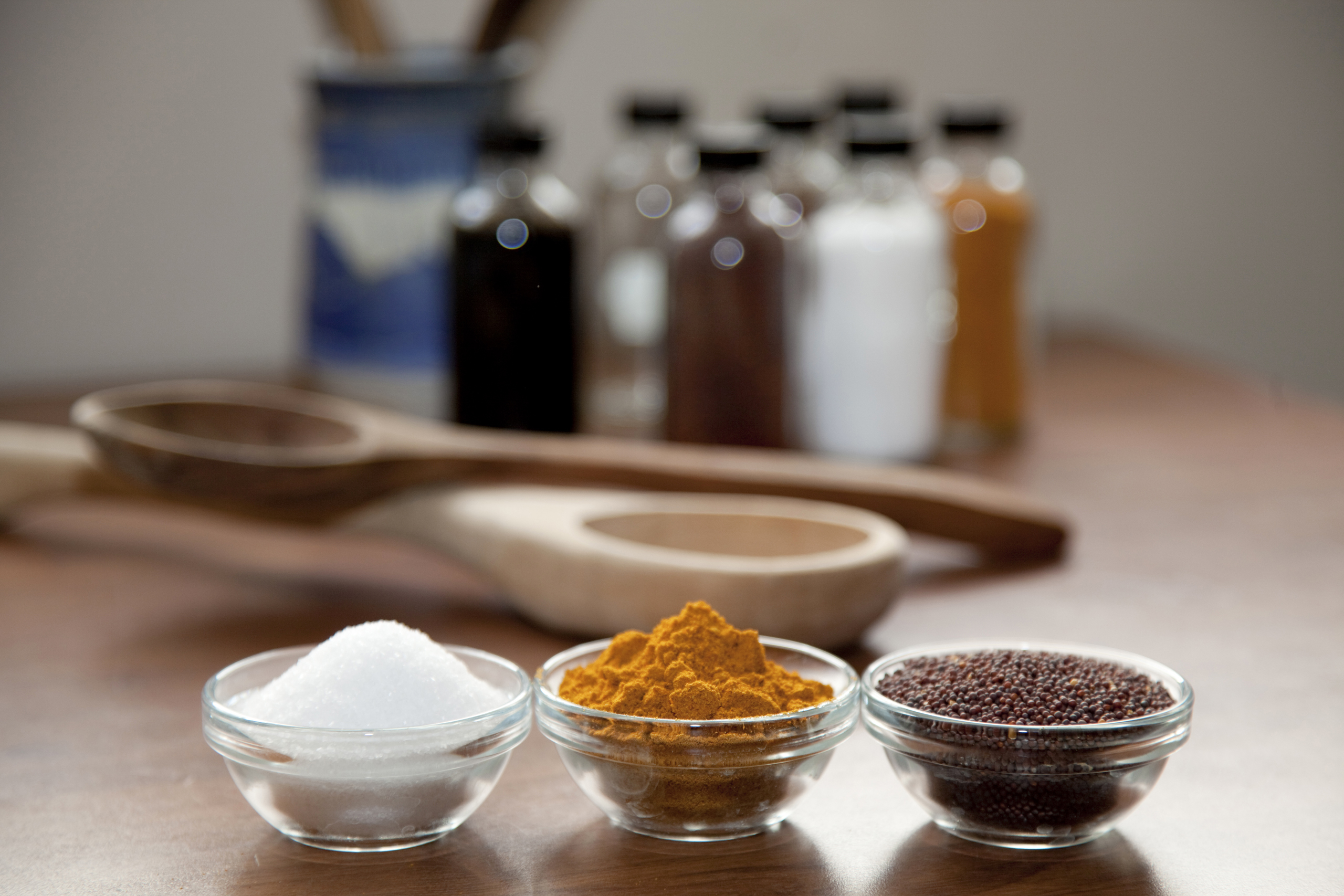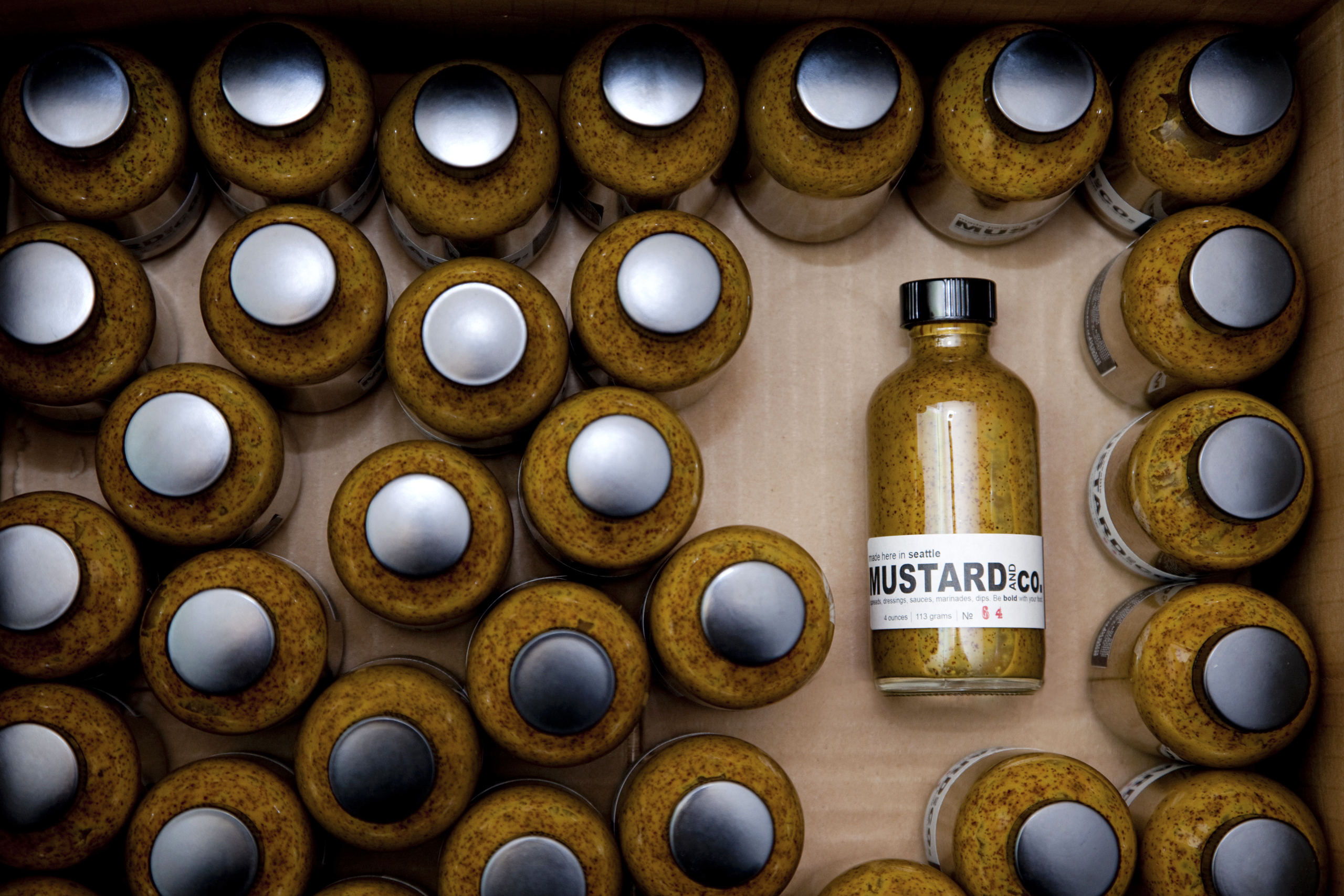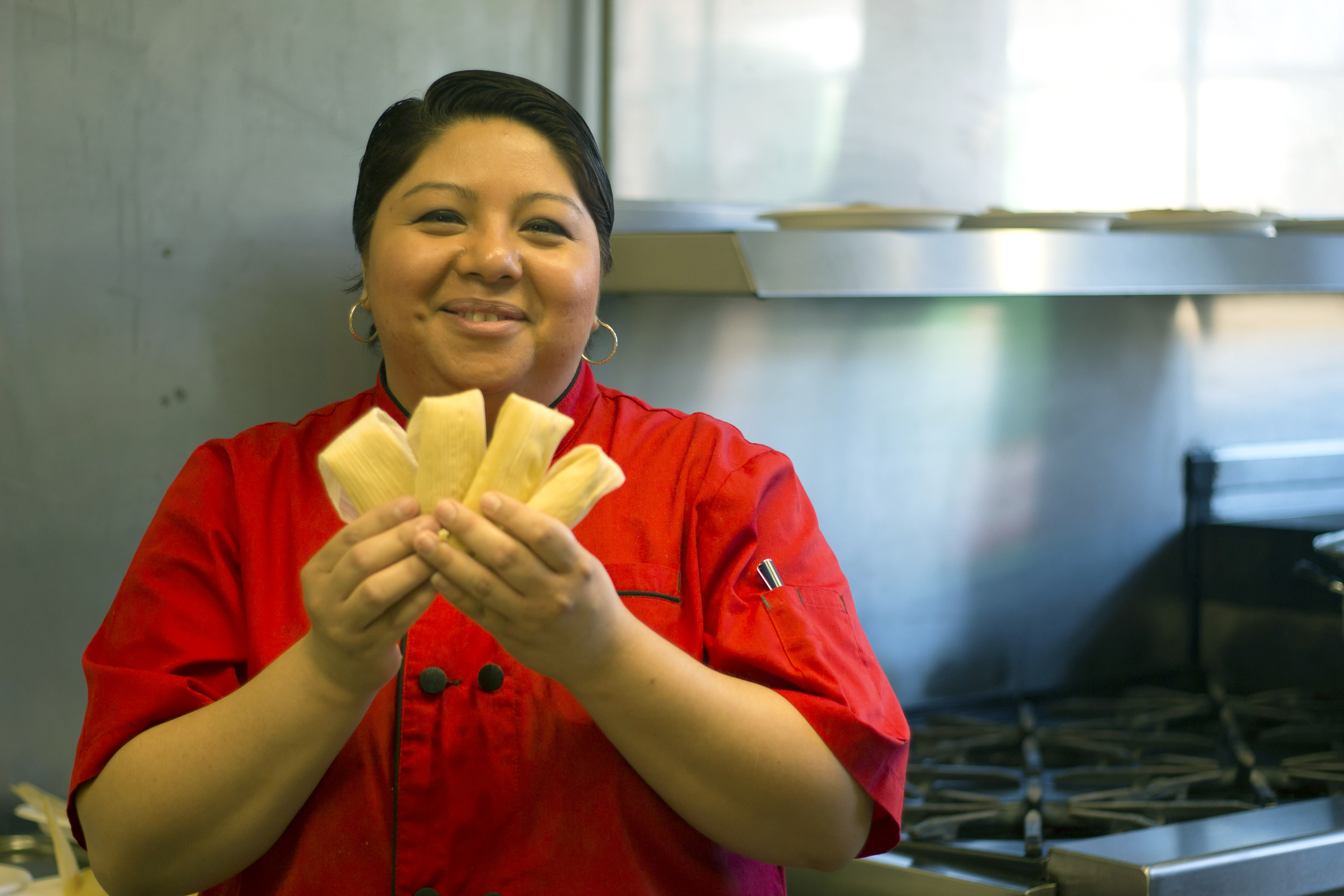Justin
Hoffman starts the story with his moment of inspiration: “I was waiting for a reuben in this little sandwich shop. I picked up a bottle of fancy honey mustard, and started reading the ingredients for some reason. I thought it was odd that a high-end mustard would have such a cheap, uninspired ingredient as white vinegar for its main ingredient.” Though the 30-year-old Wisconsin native had never been a mustard fan, Hoffman was intrigued. The curiosity stayed with him long enough to investigate other mustards, and find that lackluster ingredients were exceptionally common. “I just sort of wondered what it would taste like with a more refined substitute.” So he decided to make his own, using balsamic vinegar. Six years later, he’s now the co-founder of what looks to be Seattle’s first artisan mustard company, Mustard and Co., and his mustard is popping up at specialty shops in the area, including Macrina Bakery.
After that moment, it took about 15 minutes of intense Googling for Hoffman to become an “expert” in mustard-making. He got some seeds, spices, and balsamic vinegar, and went about making his first batch. After an hour of work, Hoffman had himself a product. For the next few years he continued to make his curiously dark mustard, using simple equipment, like an old Krups coffee grinder, to pulverize the mustard seeds into powder. The results were given to friends and family as gifts. It was a hobby—until he decided to move to Seattle.
Hoffman got a job at Molly’s, a small delicatessen that makes sandwiches and salads in a kitchen at the Seattle Design Center and sells them out of a case near the kitchen and in the UW Student Union building. At Molly’s he met Bryan Mitchiner, a recent UW graduate in urban planning. Mitchiner remembers, “Everyone at Molly’s would also talk about Justin’s mustard, and finally he brought some into work so I could try it. It was amazing.” What followed was a classic (kind of) tale: Boy meets boy, boy tastes mustard, boys start business.
And it’s these humble origins—not just their mustard, which is very good—that makes Mustard and Co. so great. Nearly every week, I’m sent a new Kickstarter campaign invitation: Help us fund this game! This bar! This album! This restaurant! Don’t get me wrong, Kickstarter is fantastic; it’s helped thousands of amazing projects get off the ground when otherwise they would have fizzled. But Mustard and Co. has a start-up story that sounds like it could have happened a hundred years ago purely because of its simplicity—just a few pieces of basic equipment, a single product, and a couple bucks for ingredients.
Ultimately it was Mitchiner who motivated Hoffman to do what he’d wanted to for a long time: make mustard professionally. “I had asked Justin if he ever considered selling it. When I found out it was something he was interested in, I started coming up with ideas of how we could do it.” But neither had the time or capital to invest in their own location and new equipment, so they made do—their managers offered the use of Molly’s kitchen after hours. Beyond that, with some simple equipment—buckets and bottle fillers—they were ready to get started.
Since its inception, Hoffman’s recipe
has been tinkered with, but largely remains close to the original. One major change was the switch from his trusty Krups coffee grinder to a hideously outdated, yellowed-with-age, could-be-in-a-Jack LaLanne-museum Green Life juicer. Before the trend of cold-pressed juice and our fascination with the idea that heat can and will destroy everything that is good and holy and nutritious in foods, Hoffman realized that he got much better flavor using the juicer, because (unlike commercial mustard grinders) the grinding process didn’t transfer nearly as much heat to the mustard seed, preserving its natural oils. For Hoffman, this innovation, born of convenience, ultimately accounted for his condiment’s signature taste.
To a brown organic mustard seed from PNW Farms, Hoffman and Mitchiner add olive oil, curry seasoning, and of course balsamic vinegar. The resulting mustard is warm and deep, lacking the powerful tang common in most store-bought mustard, with a texture similar to most stone-ground versions. Hoffman tells me that one of the reasons he prizes his retro juicer for grinding is that it doesn’t do a perfect job: “Some of the seeds get through whole, some are pulverized, others are merely broken in half, but that gives the mustard a better range of textures.”
The process is deceptively easy, and the two condiment-concocters quickly walk me through the steps. The seed is ground and added to the wet ingredients in a five-gallon bucket, then an immersion blender so large it looks like it could be a prop from the latest RoboCop mixes them. After that, it’s as simple as throwing it in a bottle and slapping on a label. Mitchiner tells me, “The acidity is high enough that we don’t really need to add preservatives or treat the bottles in some way.” Grind, mix, bottle, boom. Mustard company. I can’t believe there aren’t lots of other people doing the same thing.
After all, Washington’s no stranger to the mustard plant. The wild version you see, radiating nuclear yellow by the side of the freeway, is perceived by most as a noxious weed. Garlic mustard, another wild variety, is loved by urban foragers who crave its savory green leaves. And many of our state’s farmers depend on the plant as an environmentally friendly alternative to potentially harmful chemicals and artificial fertilizers—plowing young mustard plants into soil imparts key nutrients.
Hoffman and Mitchiner hope to capitalize on all this potential, and have already toured Tilth’s gardens to investigate a possible partnership for acquiring local seeds. “We’re in the beginning stages of all of this, but sourcing many of our ingredients locally is an obvious priority,” says Hoffman. Other priorities include expanding distribution; the mustard is still delivered by Hoffman and Mitchiner in their free time.
Mitchiner even confesses to hand-delivering single orders of the stuff to homes. “We like to have that face-to-face with people, to make an impression on them.” he tells me. And make an impression they do: The company adds grocery stores, delis, and residences to its client list by the week. But for now, the duo is content, beholden to no one—just making some mustard and seeing who’s up for a sandwich.









